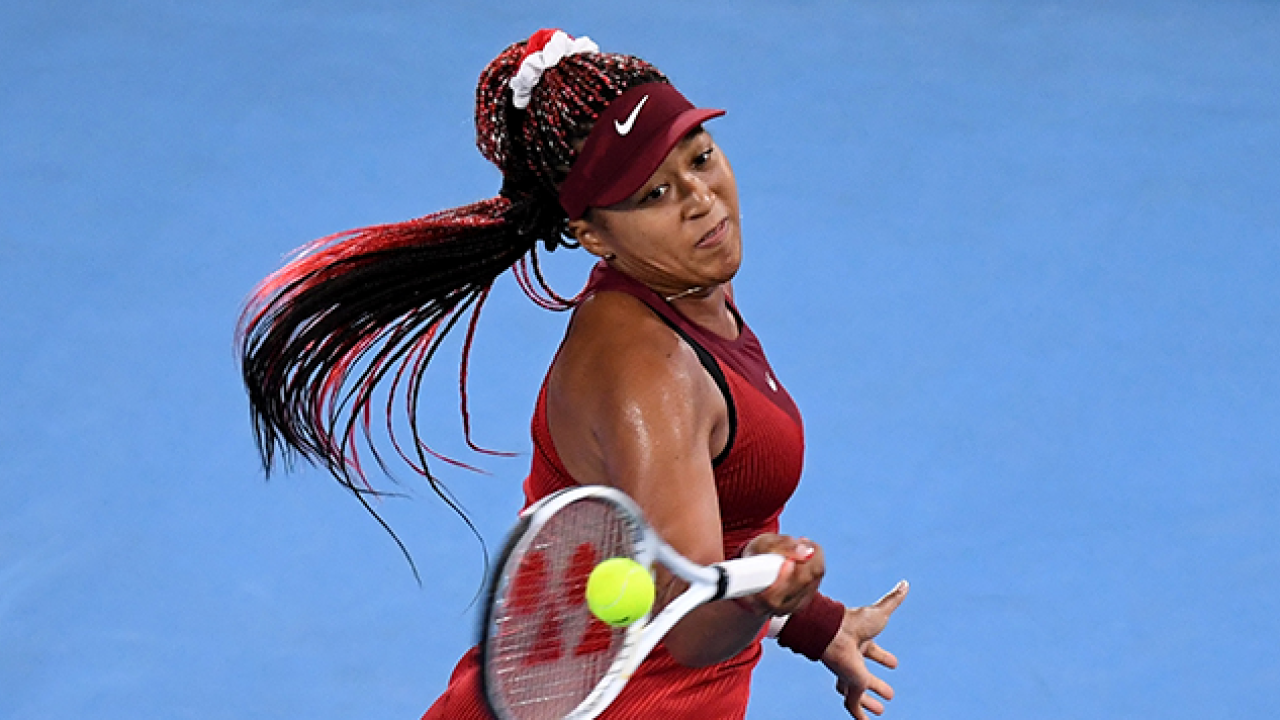
Tokyo Olympics: Hong Kong’s female fencers come up short against China in sobering return to reality
- Hong Kong’s épée team is well-beaten by world-leading China in their quarter-final clash
- There is optimism for the future of the sport after a disappointing campaign for the city’s women
Follow our live coverage of day four of the Tokyo Olympics here
In their quarter-final match, Hong Kong were well beaten, 32-44, by a hugely experienced and equally impressive China team, led by new world No 1 Sun Yiwen, who won the gold medal in the individual épée event on Saturday.
Despite the Chinese team’s world No 1 ranking, there was hope the inspiring events of the night before could propel the 15th-ranked women’s team to new levels of excellence. It proved to be a bridge too far.
“The Chinese team are really strong,” Vivian Kong Man-wai said. “I really look up to them and I really admire their fencing. There’s a lot to learn from every time we fence them.”

05:17
Naomi Osaka knocked out of Olympic Games, as Hong Kong swimmer makes history in Tokyo
China dominated, almost from the off, and never once trailed during the match. The brilliance of young Kaylin Hsieh Sin-yan in overcoming the world No 5 Lin Sheng in round four got the match back on level terms. But it was to be a brief high point for Hong Kong. Coco Lin Yik-hei was crushed 14-3 by Sun in a seemingly interminable round five and their podium hopes were as good as dashed from that point.
“I really think that the Chinese team is very strong,” an emotional Lin said. “But as a team I think we have a lot of potential to grow.
“Today wasn’t my best performance and I’m really disappointed in myself, but I’ll continue to work hard and I still have faith and trust in our team.”
Their day wasn’t quite over. Hong Kong returned to the piste soon after for a classification match against fellow quarter-final departees USA, but again came up short 31-42 in a match that lacked any real intensity from either team.
A mature team event showing from 20-year-old Hsieh, upon whose shoulders much of the future hopes of this team rest, was one of the few highlights of an otherwise underwhelming campaign for Hong Kong’s women in Tokyo.
“My main takeaway [from the Games] is to really just not think too much and just fence,” Hsieh said. “It felt like today was a lot different to how I fenced during my individual event. I felt more nervous in the individuals compared to how I did today. I learned to just fence freely but also be cautiously,” added the Youth Olympics silver medallist.
But on the day after the night before, there was optimism among the disappointment.
“I really believe in our team, our coach and the whole team behind us,” Kong said. “There’s a lot to work on and now we know. We look forward to the next competition.”
And a reflection of a bright future for the sport in Hong Kong after Cheung’s heroics.
“I think it’s very touching for all of us to see the whole city cheering,” said the team’s fourth member Chu Ka-mong. “We got a lot of videos of people cheering in the malls and everything, so it makes us really proud to be a fencer from Hong Kong.”
There was one highlight for Hong Kong though as they ended their campaign on a high.
A hugely impressive last round onslaught from Kong claiming a narrow 28-27 win over the Russian Olympic Committee provided a rare win and secured a seventh-placed finish .
Attention now switches to Thursday when the men’s foil team, featuring Hong Kong’s newest Olympic gold medal hero returns to action against the world No 4-ranked Russian Olympic Committee team.

